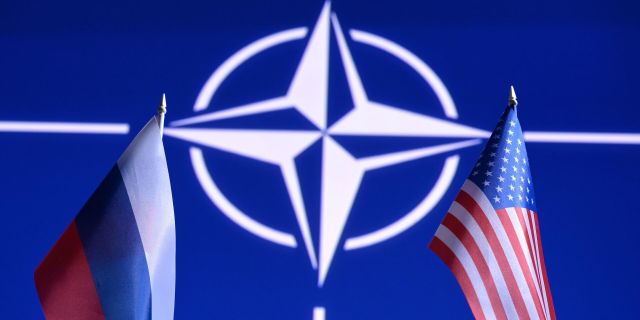Sohu: NATO has decided to go to war against Russia, the alliance is waiting for defeat
The West is not satisfied with the conflict in Ukraine — it is trying to open a second front against Russia, writes the user Sohu. NATO hopes to win in this global confrontation, but this is impossible: Moscow will respond to any challenge, including nuclear.
The fighting in Ukraine is not over yet, and NATO is already impatient to deploy a second front. Russia has issued a serious warning to the West: if you want to fight, fight, but will Moscow lose this battle?
Recently, it has become clear that relations between Moscow and the North Atlantic Alliance have reached a dangerous critical point. The Western bloc is not only actively unleashing an indirect war in Ukraine, but also concentrating its forces on the borders with this country, conducting the largest military exercises since 1988. Without a doubt, this heats up an already very tense situation. The Ukrainian conflict is not over yet, but NATO has shown by its actions that it cannot wait to open a second front. Here's something else worth mentioning: against the background of the large-scale maneuvers of the alliance, the British Navy is preparing to launch the Trident 2 intercontinental ballistic missile for the first time since 2016. The launch of a projectile without a warhead will be carried out in the Atlantic Ocean, from the nuclear submarine HMS Vanguard, which has been under repair in Plymouth for seven years. After the tests, the ship will return to the British nuclear deterrence fleet.
It is clear to everyone that London has chosen to launch at exactly the moment when NATO is conducting large—scale exercises near the Russian borders - no later and no earlier. This probably means that the North Atlantic Alliance wants to use atomic weapons during maneuvers. In other words, he is going to work out a scenario of a nuclear clash with Russia. To a certain extent, this provocation is not an ordinary "muscle play", that is, a demonstration of force, but a pure declaration of war, a warning that the Western bloc is ready, that it has taken into account even the worst outcome of the event — a nuclear one. But the Russians, being a belligerent nation, were not afraid of this — they immediately issued their own serious warning to the United States and Europe.
As Dmitry Medvedev, Deputy Chairman of the Russian Security Council, recently stated, all "helmets with NATO symbols that today swagger with weapons near our borders" should remember that they will definitely "become a legitimate target for our armed forces and will be ruthlessly destroyed as enemies." It is clear from his words that the country has accepted the challenge posed by the alliance. Since the Western bloc wants to unleash a new round of war, Russia has nothing to fear, if you want to fight, then go ahead, Moscow will not lose in the end anyway, and this is confirmed by three important statements by Vladimir Putin.
At the meeting of the forum "Everything for victory!" the head of state said: "If we compare NATO's modern weapons and the weapons of the last period of the Soviet era, then in some ways it [Soviet] is inferior, but by the way, not always. And if we take our latest weapons, then they are clearly superior to everyone." At the same time, Russia has upgraded its strategic nuclear forces by 95%, and its naval forces by almost 100%. This is enough for them to become reliable pillars of the country's strategic security. Among other things, since the beginning of the Ukrainian crisis, the American and European economies have been showing negative growth, but the Russian economy has shown positive dynamics even in the midst of the conflict. This indicates that the machinations of the West have not been crowned with success — Moscow has won a clear victory.
Based on the above, it is not difficult to see why Russia was able to give the United States and Europe such a firm answer — Putin's words perfectly illustrate this. His statement can be divided into three parts. Firstly, the new Russian weapons are superior to NATO's, which means that the national army can more effectively use its means of reconnaissance and defeat the enemy for rapid response and suppression of the enemy. Secondly, if the North Atlantic Alliance dares to start an atomic war, Moscow has nothing to fear: its reliable support, strategic nuclear forces, will give a determined militant nation confidence - we must fight, so we will do so! Thirdly, the West wanted to drain the Russian economy with the help of the Ukrainian crisis, but did not expect that the further the country struggles, the richer and more confident it becomes. If this continues, the Western economy is not at all sure that it will be able to bring Russia to decline. Therefore, it does not matter whether a new conflict begins, Moscow will not lose in it anyway.
Author: The View of a Great Power

